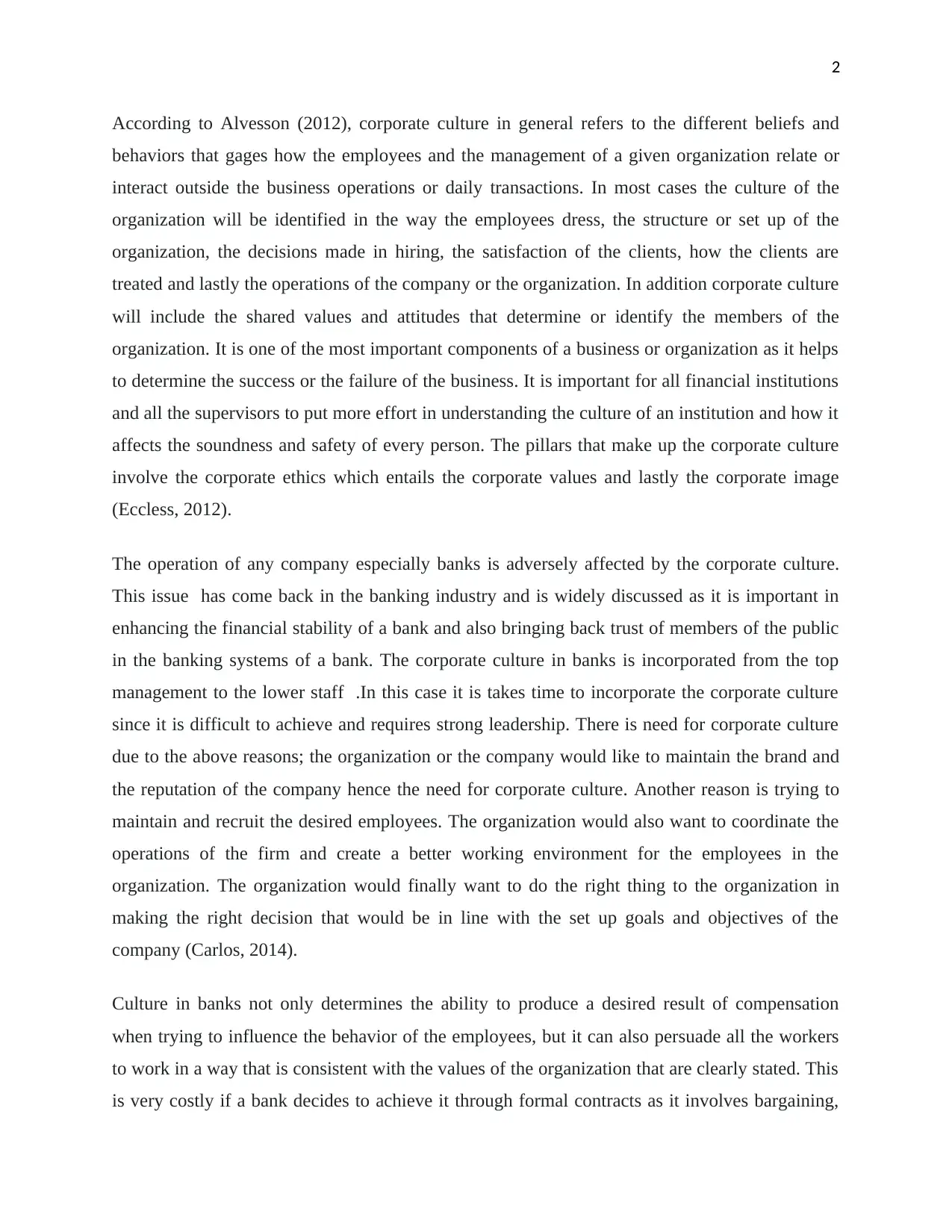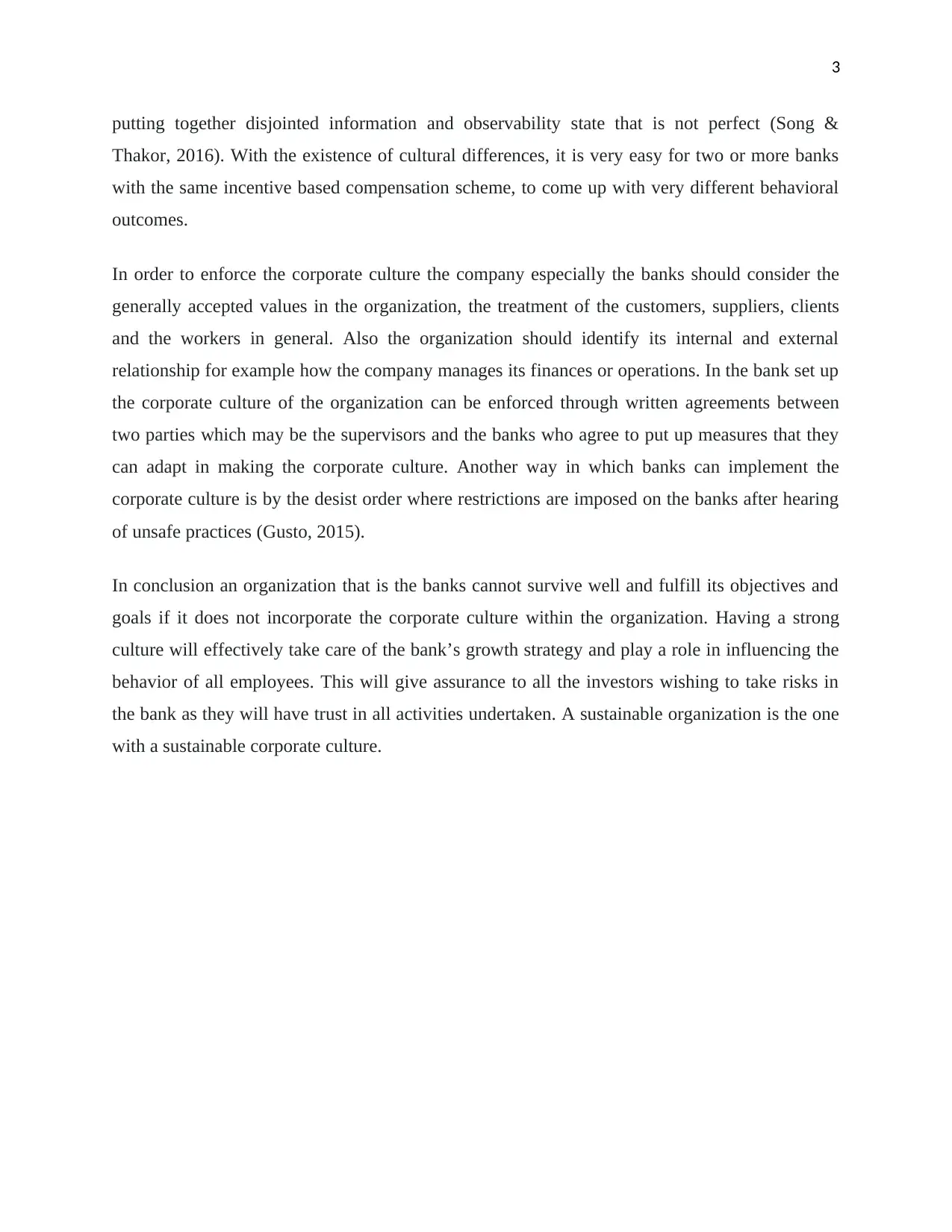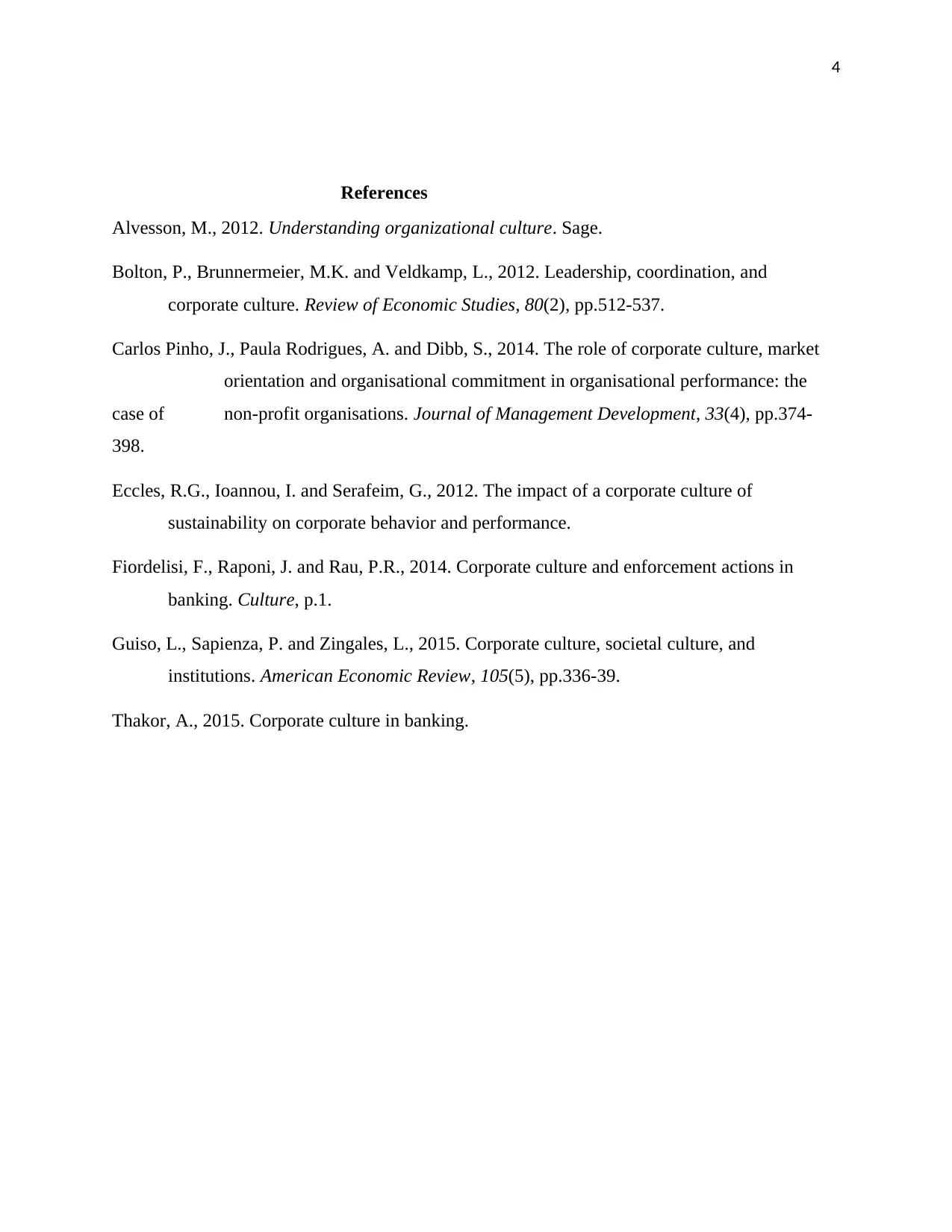The Role of Corporate Culture: Enforcement Strategies and Importance
VerifiedAdded on 2023/06/12
|5
|975
|467
Essay
AI Summary
This essay provides an overview of corporate culture, defining it as the shared beliefs and behaviors that influence employee and management interactions within an organization. It highlights the importance of corporate culture in ensuring the success and stability of businesses, particularly in financial institutions. The essay discusses the key components of corporate culture, including corporate ethics, values, and image, and examines how these elements impact a company's operations. It also explores the reasons for establishing a strong corporate culture, such as maintaining brand reputation, attracting and retaining employees, and coordinating operations. Furthermore, the essay investigates methods for enforcing corporate culture, such as written agreements and desist orders, emphasizing that a robust culture is essential for sustainable organizational growth and investor confidence. The document is available on Desklib, a platform offering study tools and solved assignments for students.
1 out of 5












![[object Object]](/_next/static/media/star-bottom.7253800d.svg)